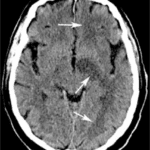Acid reflux is a common digestive condition that affects many individuals worldwide, causing discomfort and impacting their quality of life. It occurs when stomach acid flows back up into the esophagus, leading to symptoms such as a burning sensation in the chest (heartburn), regurgitation of food or sour liquid, and upper abdominal or chest pain [6]. While medications are often used to alleviate symptoms, it’s essential to recognize that prevention is key in managing acid reflux effectively.
In this blog post, we will explore the significance of preventing acid reflux through lifestyle changes. Although medication can provide temporary relief, implementing sustainable habits can offer long-term relief and minimize the reliance on pharmaceutical interventions.
Dietary Adjustments
Maintaining a healthy diet is a fundamental aspect of preventing acid reflux. By making mindful choices about what we eat and how we consume our meals, we can significantly reduce the occurrence of acid reflux symptoms. Here are some dietary adjustments to consider:
01. Eat Sparingly and Slowly
Overeating and consuming meals too quickly can put additional pressure on the stomach, leading to an increased likelihood of acid reflux. To prevent this, it is advisable to eat smaller, more frequent meals throughout the day. This approach allows the stomach to digest food more effectively and minimizes the risk of excess stomach acid flowing back into the esophagus. Additionally, chewing food thoroughly and taking the time to enjoy each bite can aid in proper digestion.
02. Avoid Trigger Foods
Certain foods are known to trigger or exacerbate acid reflux symptoms. It is essential to identify these trigger foods and limit or avoid them altogether. Some common culprits include acidic fruits like citrus fruits (lemons, oranges), tomatoes, spicy foods, chocolate, caffeine, carbonated beverages, and fatty or fried foods. By being mindful of these triggers and making healthier choices, we can significantly reduce the occurrence of acid reflux episodes.
03. Opt for Cooked Onions
Raw onions have been known to contribute to acid reflux symptoms in some individuals. The high sulfur content and difficult-to-digest nature of raw onions can irritate the lining of the esophagus, leading to heartburn and discomfort. If you find that raw onions worsen your acid reflux, consider opting for cooked onions instead. Cooking onions can help soften their texture and reduce their impact on the digestive system, making them a more suitable choice for those prone to acid reflux.
By implementing these dietary adjustments, you can take proactive steps toward preventing acid reflux. Remember, everyone’s triggers and sensitivities may vary, so it is essential to pay attention to your body’s response to different foods and make personalized choices accordingly. In the next section, we will explore lifestyle modifications that can further support acid reflux prevention.
Lifestyle Modifications
In addition to dietary adjustments, certain lifestyle modifications can play a crucial role in preventing acid reflux. By incorporating these changes into our daily routines, we can effectively manage and reduce the occurrence of acid reflux symptoms. Here are some lifestyle modifications to consider:
04. Adjust Sleeping Position
The position in which we sleep can significantly impact acid reflux symptoms, particularly during the night. Sleeping on the left side has been shown to reduce acid exposure in the esophagus by up to 71%. This position takes advantage of the anatomical positioning of the esophagus and the stomach, preventing stomach acid from flowing back into the esophagus. Consider adjusting your sleeping position to the left side to help alleviate acid reflux symptoms. Additionally, elevating the head of your bed by placing wooden blocks under the bedposts can further aid in reducing nighttime acid reflux symptoms.
05. Wear Loose-Fitting Clothing
Tight clothing, especially around the waistline, can increase pressure on the abdomen, leading to worsened acid reflux symptoms. To prevent this, opt for loose-fitting clothing that allows for comfortable movement and does not constrict the abdomen. This simple adjustment can alleviate unnecessary pressure on the stomach and minimize the occurrence of acid reflux.
06. Maintain a Healthy Weight
Excess belly fat can contribute to the development and severity of acid reflux. When abdominal pressure increases due to excess weight, it can push the lower esophageal sphincter away from the diaphragm’s support, allowing stomach acid to flow back into the esophagus. Therefore, maintaining a healthy weight is crucial in preventing and managing acid reflux. If you are overweight, losing as little as 10% of your body weight can significantly decrease acid reflux symptoms and improve overall well-being.
By implementing these lifestyle modifications, you can take proactive steps toward preventing acid reflux and enjoying a better quality of life. In the next section, we will explore additional strategies and natural remedies that can provide relief and support in managing acid reflux.
Habits to Adopt
Adopting certain habits can greatly contribute to preventing acid reflux and minimizing its symptoms. By incorporating these habits into your daily routine, you can promote better digestive health and reduce the discomfort associated with acid reflux. Here are some habits to consider:
07. Avoid Late-Night Eating
Eating a meal right before bed or late at night can significantly worsen acid reflux symptoms. When we lie down horizontally after a meal, digestion becomes more challenging, allowing stomach acid to flow back into the esophagus. To prevent this, it is recommended to finish dinner at least three hours before bedtime. By allowing sufficient time for digestion before lying down, you can reduce the likelihood of acid reflux and promote better sleep quality.
08. Quit Smoking
Smoking not only poses serious health risks but also has a detrimental effect on acid reflux. Smoking weakens the lower esophageal sphincter, allowing stomach acid to escape into the esophagus more easily. It also impairs the esophagus’s ability to clear out acid, leading to increased acid reflux symptoms. Quitting smoking is not only beneficial for acid reflux but also for overall health and well-being.
09. Limit Alcohol Intake
Excessive alcohol consumption can exacerbate acid reflux symptoms. Alcohol increases stomach acid production, relaxes the lower esophageal sphincter, and impairs the esophagus’s ability to clear out acid. It is advisable to moderate your alcohol intake and be mindful of its effects on your acid reflux symptoms. Limiting or avoiding alcohol can significantly reduce the severity and frequency of acid reflux episodes.
10. Chewing Gum
Chewing gum, especially one that contains bicarbonate, may offer relief from acid reflux symptoms. Chewing gum stimulates saliva production, which can help neutralize stomach acid and clear the esophagus. Additionally, the increased saliva production promotes swallowing, further aiding in the removal of acid from the esophagus. While more research is needed to confirm its effectiveness, chewing gum can be a simple and potentially beneficial habit to incorporate into your acid reflux management routine.
By adopting these habits, you can actively prevent and manage acid reflux symptoms. In the next section, we will explore natural remedies and alternative therapies that can provide further support in alleviating acid reflux discomfort.
Conclusion
Preventing acid reflux is crucial for improving your quality of life and minimizing discomfort. Taking a proactive approach to prevent acid reflux naturally can lead to long-term relief and improved well-being. By adopting these lifestyle changes and habits, you can regain control over your digestive health and enjoy a more comfortable life. Remember to prioritize self-care, listen to your body, and seek professional guidance for personalized support on your journey to preventing and managing acid reflux.


